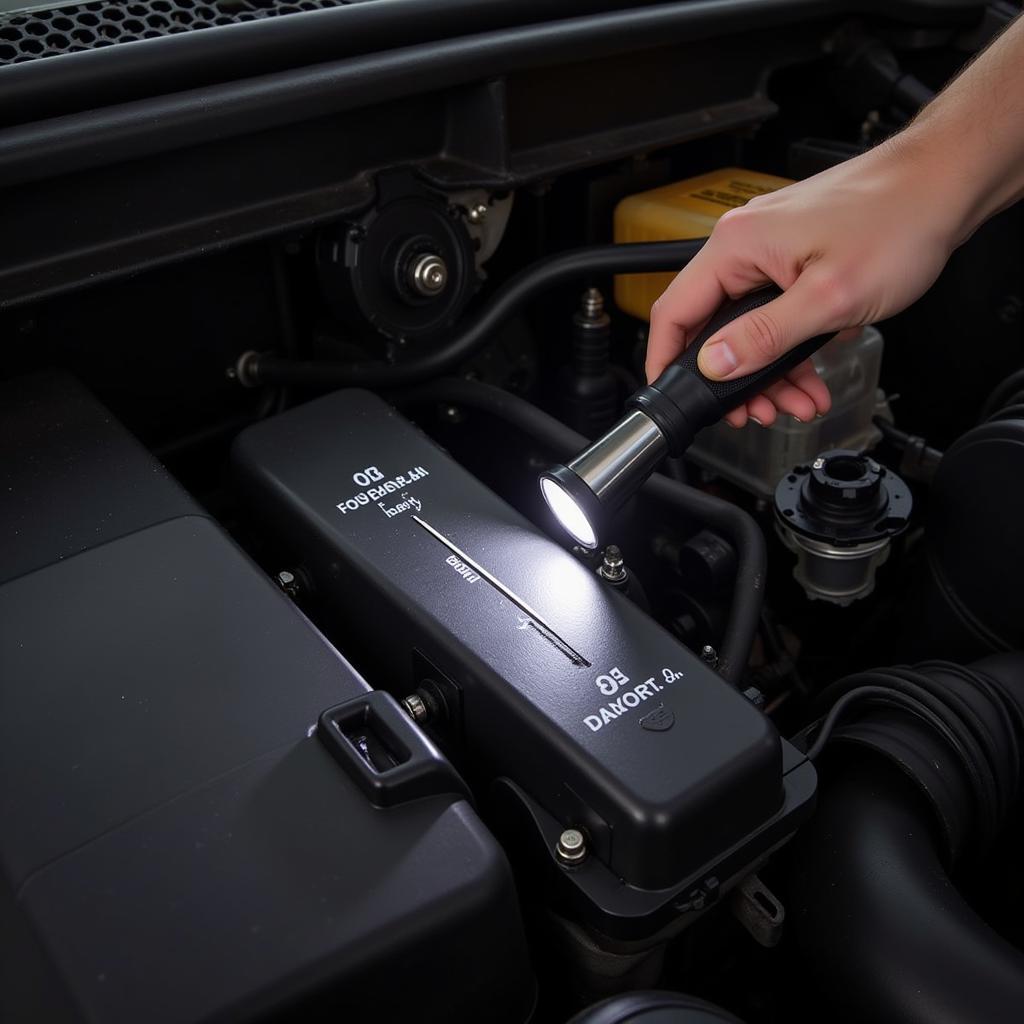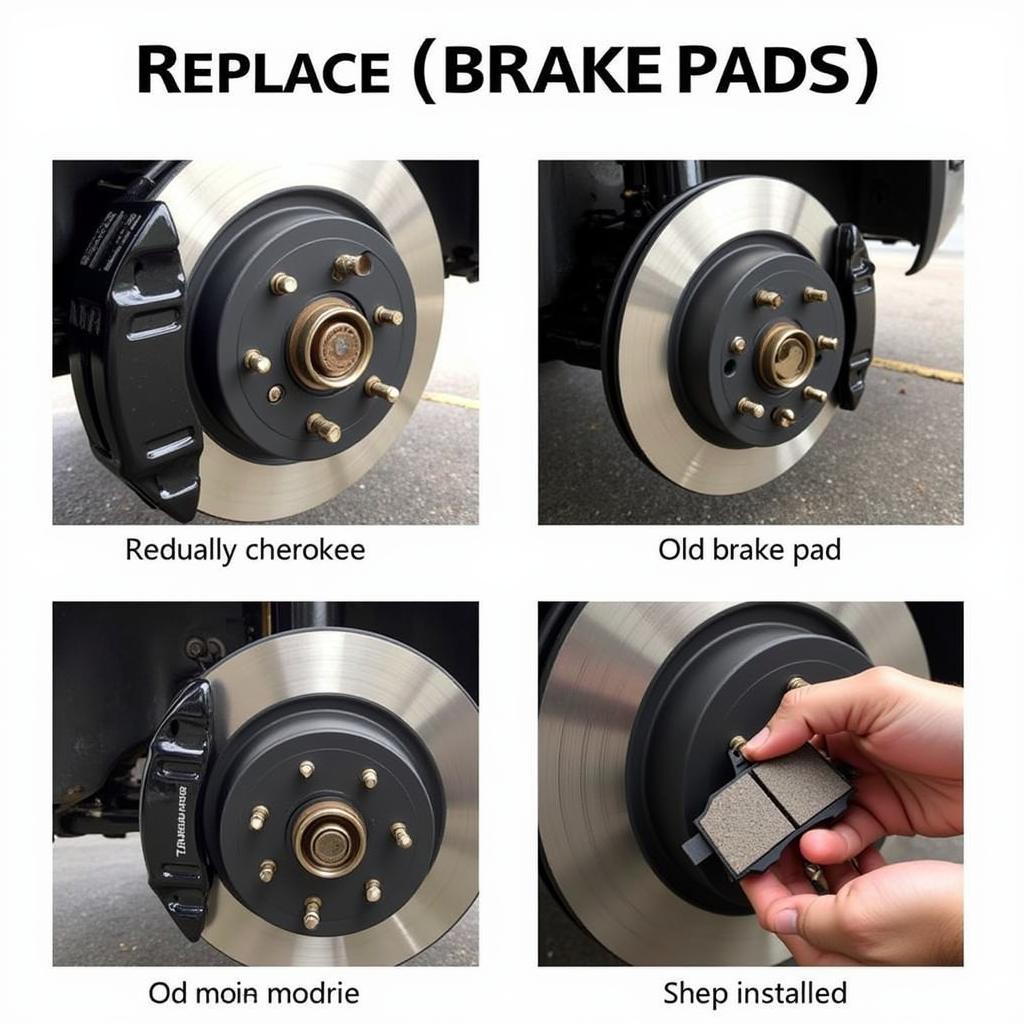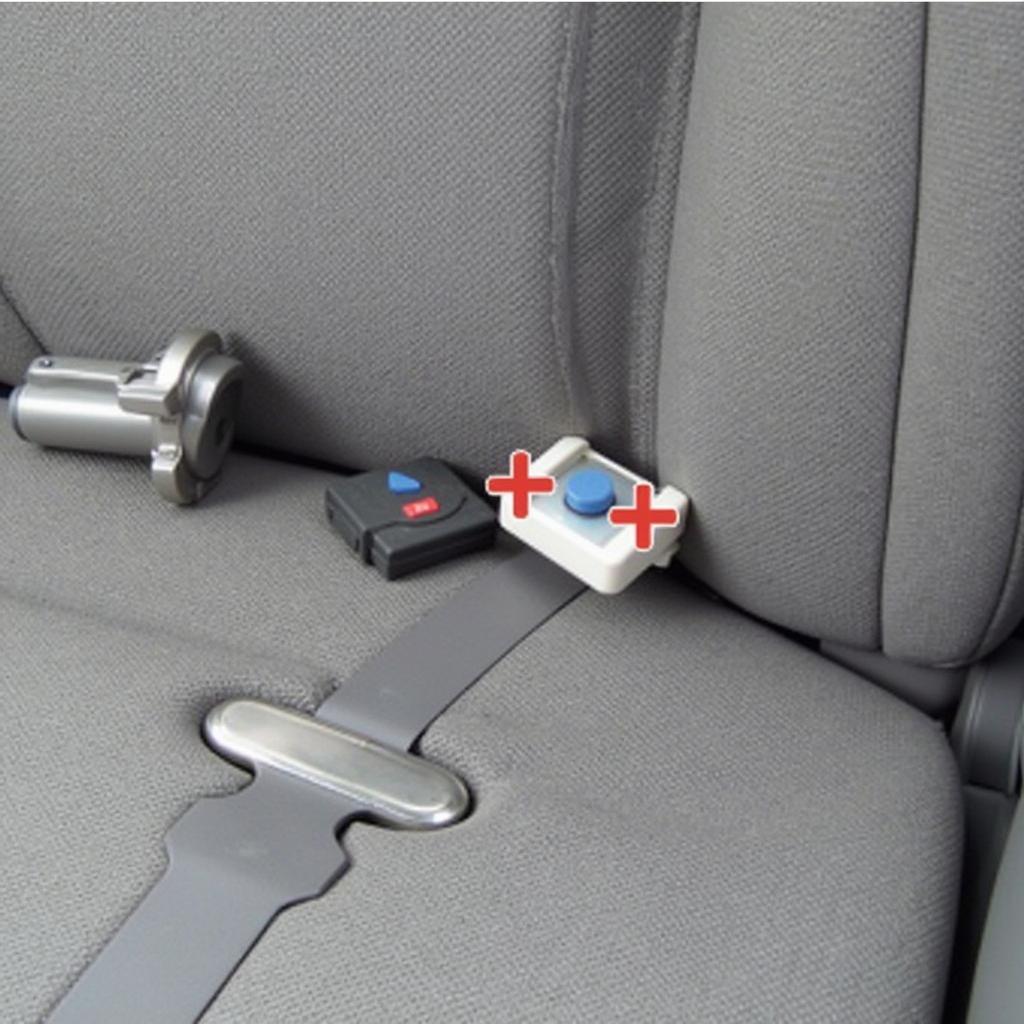The dreaded jeep grand cherokee brake warning light can be a source of anxiety for any driver. Understanding why this light illuminates and how to address the issue is crucial for your safety and the longevity of your vehicle. This comprehensive guide will provide you with the knowledge and resources necessary to troubleshoot and resolve your Jeep Grand Cherokee brake warning light concerns.
2004 jeep grand cherokee brake warning light
There are several reasons why your Jeep Grand Cherokee’s brake warning light might be on, ranging from simple fixes to more complex issues requiring professional attention. From low brake fluid to worn brake pads and potential problems with the ABS system, we’ll cover all the bases. This guide is designed to help you understand the potential causes, diagnostic procedures, and solutions, empowering you to take control of the situation.
Understanding Your Jeep Grand Cherokee’s Brake System
The brake system in your Jeep Grand Cherokee is a complex network of interconnected components working together to ensure safe and efficient stopping power. A key element in this system is the brake warning light, designed to alert you to potential issues that require attention. Ignoring this warning light can lead to serious safety hazards and costly repairs down the line.
Common Causes of the Brake Warning Light
The most common reason for the brake warning light to illuminate is low brake fluid. This can be caused by a leak in the brake lines, worn brake pads, or a faulty brake master cylinder. Other potential culprits include a malfunctioning ABS (Anti-lock Braking System) sensor or a problem with the parking brake.
 Checking Brake Fluid Level in a Jeep Grand Cherokee
Checking Brake Fluid Level in a Jeep Grand Cherokee
Another common cause is worn brake pads. As your brake pads wear down, they reach a point where they trigger a sensor that activates the brake warning light. This is a crucial safety feature designed to alert you to replace your brake pads before they become completely worn out, potentially damaging your rotors.
2002 jeep grand cherokee brake warning light
Diagnosing the Problem
Diagnosing the issue behind the illuminated brake warning light often begins with a visual inspection of the brake system. Check the brake fluid reservoir to ensure the fluid level is within the recommended range. Inspect the brake lines for any signs of leaks or damage. Next, examine the brake pads for wear. If they appear thin or worn, they likely need replacement.
Using Diagnostic Tools
For more complex issues, such as potential problems with the ABS system, specialized diagnostic tools may be required. These tools can read the error codes stored in your vehicle’s computer, providing valuable insights into the specific problem area. Remote diagnostic services, like those offered by specialized automotive technicians, can offer quick and convenient solutions by analyzing these error codes and providing tailored recommendations.
Solutions and Repairs
Depending on the diagnosed problem, the solution can range from simple DIY fixes to more involved repairs requiring professional assistance. Low brake fluid can be addressed by topping off the reservoir with the correct type of brake fluid. Worn brake pads require replacement, which can often be done at home with basic tools. However, more complex issues like ABS system malfunctions or brake line leaks usually require the expertise of a qualified mechanic.
2008 jeep grand cherokee brake warning lights
Remote programming and software installation services can also play a crucial role in resolving certain brake warning light issues, particularly those related to software glitches or updates in the vehicle’s electronic control modules. These services offer a convenient and efficient way to address such problems without the need for a physical visit to a repair shop.
“Regular maintenance is key to preventing brake system issues. Addressing minor problems early can prevent them from escalating into major and costly repairs,” says John Smith, Senior Automotive Technician at Certified Auto Solutions.
Conclusion
The jeep grand cherokee brake warning light should never be ignored. By understanding the potential causes, diagnostic procedures, and available solutions, you can take proactive steps to ensure the safety and reliability of your vehicle. Remember, regular maintenance and timely repairs are crucial for preventing costly and potentially dangerous brake system failures. Don’t hesitate to seek professional assistance when needed.
2000 jeep grand cherokee brake warning light
 Replacing Brake Pads on a Jeep Grand Cherokee
Replacing Brake Pads on a Jeep Grand Cherokee
FAQ
-
What should I do if my Jeep Grand Cherokee brake warning light comes on? Pull over safely and check your brake fluid level. If it’s low, top it off. If the light persists, have your vehicle inspected by a qualified mechanic.
-
Can I drive my Jeep Grand Cherokee with the brake warning light on? It’s not recommended. Driving with the brake warning light on could indicate a serious problem that could compromise your safety.
-
How often should I check my brake fluid? Check your brake fluid level at least once a month.
-
How much does it cost to fix a Jeep Grand Cherokee brake warning light issue? The cost varies depending on the underlying problem. It could range from a few dollars for brake fluid to several hundred dollars for more complex repairs.
-
What is the ABS system and why is it important? The ABS (Anti-lock Braking System) prevents your wheels from locking up during hard braking, allowing you to maintain steering control.
-
How often should I replace my Jeep Grand Cherokee’s brake pads? Brake pad replacement intervals vary depending on driving habits and conditions. Consult your owner’s manual or a qualified mechanic for recommendations.
-
Can remote diagnostics help with my Jeep Grand Cherokee brake warning light? Yes, remote diagnostics can help identify the underlying cause of the brake warning light and provide tailored solutions.
2012 jeep grand cherokee brake warning light
“Remote diagnostics and programming services are transforming the automotive repair industry, providing efficient and convenient solutions for many common vehicle issues,” adds Maria Garcia, Lead Diagnostic Technician at Remote Auto Solutions.

